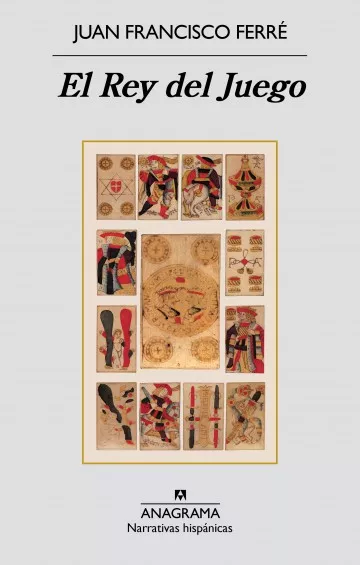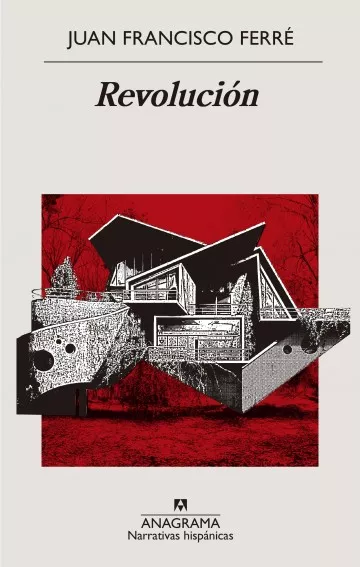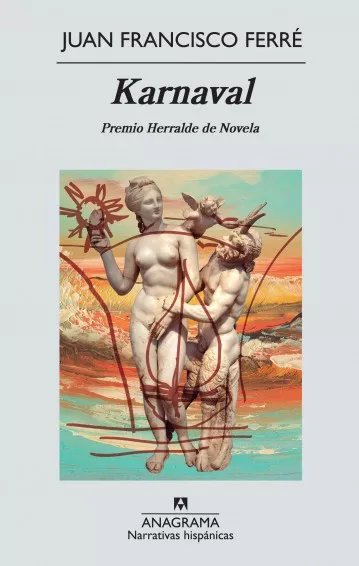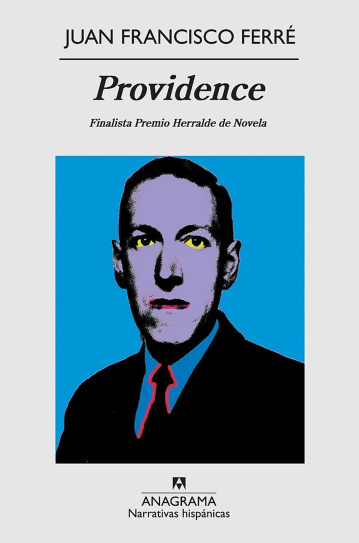| PAGES | 280 |
| SERIES | Narrativas hispánicas |
| PUBLICATION | 14/10/2015 |

SERIES:Narrativas hispánicas
The protagonist and narrator of this novel, Axel Bocanegra –a divorced, forty-something writer who has seen better days—, appears at the beginning of his story at home, watching porn on the sofa while drinking freely from a bottle of Jack Daniels. We are in Spain in 2014, and two fans of his books—two brothers, or supposed brothers—arrange to meet him in the Bar de Bringas to discuss football and other philosophical matters. With sophistry and lies, they persuade him to accompany them to an abandoned cultural centre called Reino de la Ruina. There, Axel Bocanegra, as if he were Alice falling into the rabbit hole, sinks into a world that is not exactly a Wonderland.
The fake brothers, who turn out to be agents of a highly secret Secret Service, hand him over to a dwarf and a mad scientist who torture him and drug him, sending him further into a world of nightmares. Suffering an induced hallucination, Axel Bocanegra traverses a Kafkan landscape in which conspiracies doppel gangers of the King of Spain, a girl called Marta and the eponymous King of the Game, pulls the strings that turn him into a puppet...
This frenzied, crazy and relentless novel can be read as a hallucinatory thriller, a comic without pictures or a literary videogame that works without the need for controls. Once again, Juan Francisco Ferré studies socio-political realities—in this case Spanish—by escaping from realism to elaborate an artefact (an explosive one) that is a narrative watercolour, a Goyaesque folly, a monstrosity worthy of Valle Inclan, a lucid delirium that mixes science fiction, eroticism, parody, philosophical reflections, cultural asides, conspiracy theories, card games and video games.
Following the path he began with Providence (Premio Herralde de Novela Runner-Up 2009) and Karnaval (Premio Herralde de Novela 2012), the author continues one of the most ambitious, radical and fascinating projects in Spanish literature, taking the novel to a new dimension.
«A crazy, unpredictable, tumultuous and twisting tale. A glorious folly to be read with great attention» (José María de Loma, La Opinión de Málaga).
«El Rey del juego is an entertaining read (especially the first half), restless and full of bad intentions (which is a virtue)… A novel like a video game and, as all gamers know, the point of a game is not so much to get to the next level as to gleefully destroy everything that gets in your way» (Nadal Suau, El Mundo-El Cultural).
«Humour and irony are forms of knowledge and also the best way to undermine cliché and popular discourse. A book filled with Cervantes and a profound humanity, mercy and great beauty that manifests itself in the complaints of the protagonist-narrator. Read it.» (Antonio Garrido, Diario SUR).
«This entertaining novel creates a carnivalesque world that hides a bitter diagnosis of a country tied to its past and suffering a serious identity crisis. The severe moralist that camouflages the book provides a response for the whole of Spain» (Santos Sanz Villanueva, Mercurio).
«A great Spanish novel, a mixture of comic, cinema and video game, of Lewis Carroll and Cervantes, Robert and Benito Pérez Galdós» (Alberto Gordo, El Mundo - El Cultural).
| PAGES | 280 |
| SERIES | Narrativas hispánicas |
| PUBLICATION | 14/10/2015 |


Juan Francisco Ferré (Malaga, 1962), has published the collection of stories Metamorfosis (2006) and the novels Return to the World (2002), I Love You Sade (2003), and Party for the Dimwit (2005; translated into French in 2012). His novel Providence(Finalist for the Herralde Prize 2009) achieved a rare and splendid critical unanimity, just as much for the Spanish version as it did for the French: “As well as being a narrator gifted with an imagination on amphetamines, Ferré is a precise and malevolently intelligent writer”. (Pablo Martínez Zarracina, El Correo Vasco), “An arteface that demystifies the new virtual reality. With an agile literary tongue: At once both malicious and full of this icy irony that Nabokov displayed. A novel that encapsulates the alienation of a new kind, infinitely more lethal than Marx could have ever imagined.” (J.E. Ayala Dip); “It deals a heavy blow to the “American Way of Life” with its groundbreaking plot: Providenceexposes America’s most feverish side.” (Juan Antonio Masoliver Ródenas, La Vanguardia); “A mutant daughter of Pynchon and Foster Wallace, the novel appears to be a work of an intellectual thug with a desire to fight (ideological)” (Jordi Costa, El País); “A foreign revelation of a comeback, Juan Fransisco Ferré has launched a postmodern bomb towards the world of the book. A name to watch” (Les Inrockuptibles); “It is a novel-monster, post-modern up to the diabolical… a sort of Ulysses of the digital era” (Bernard Quiriny, MK2); “The most successful attempt to express our contemporary experience” (Gladys Marivat, Tehnikart).





